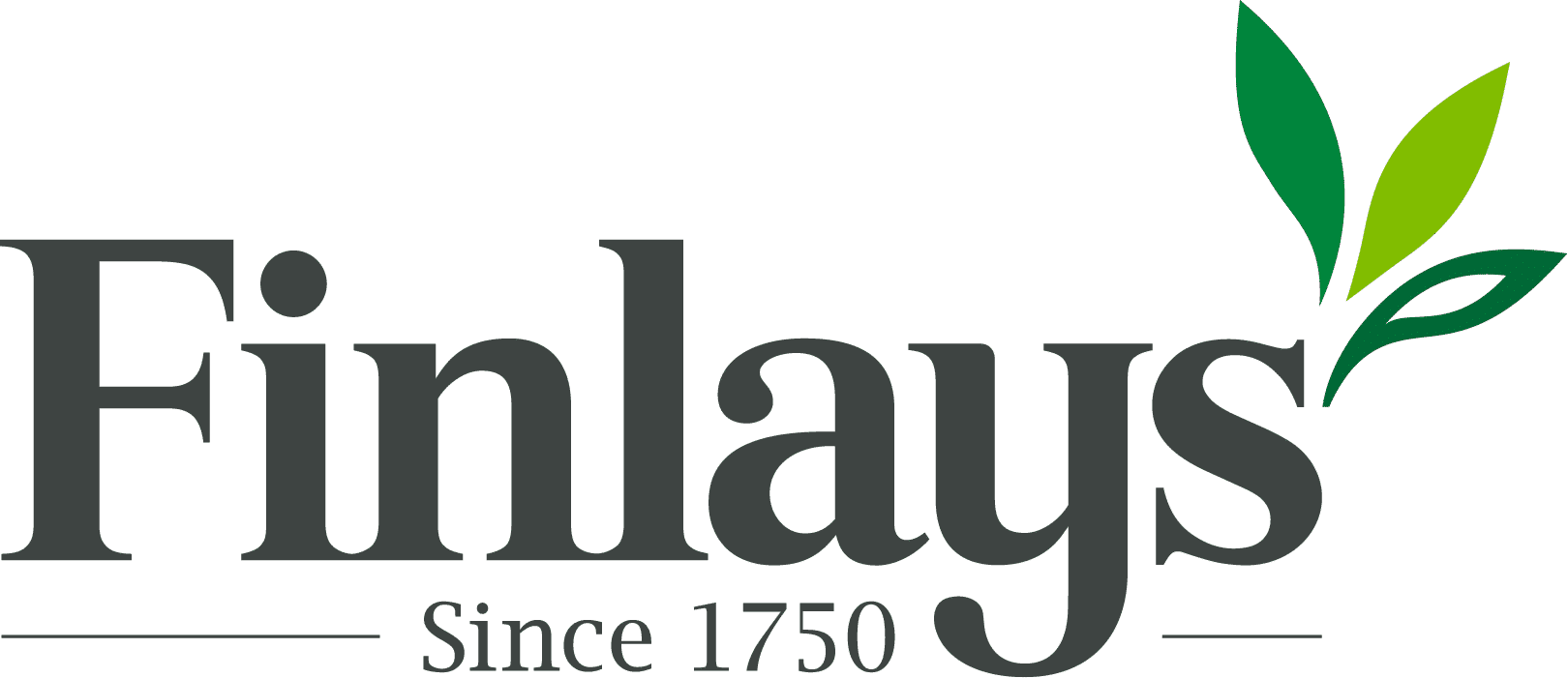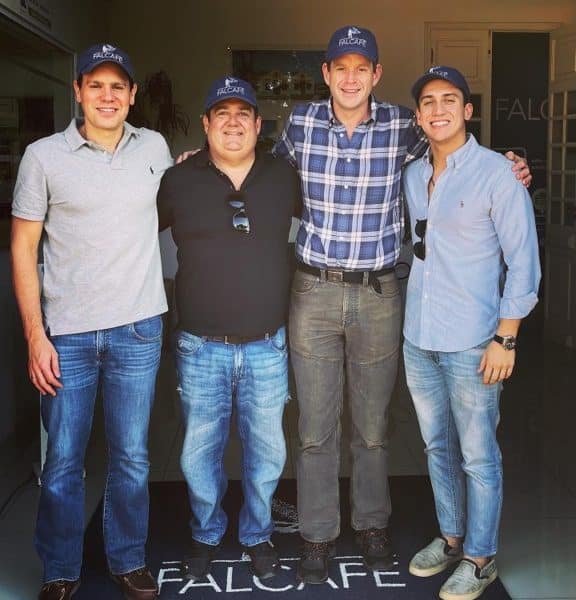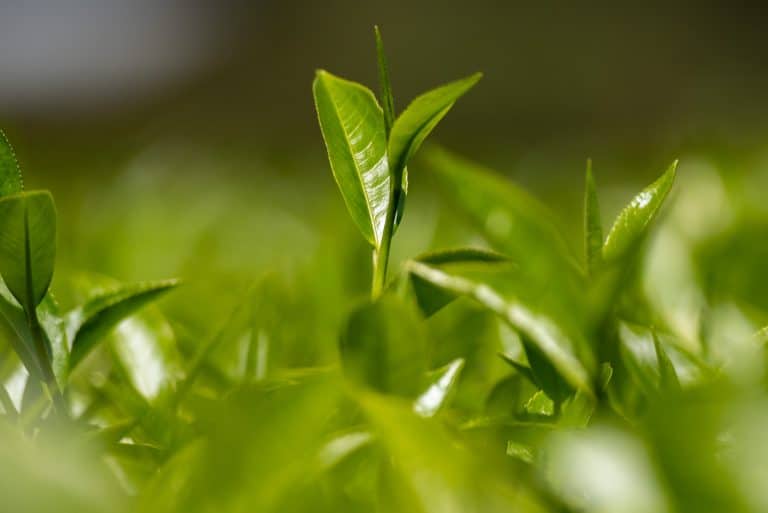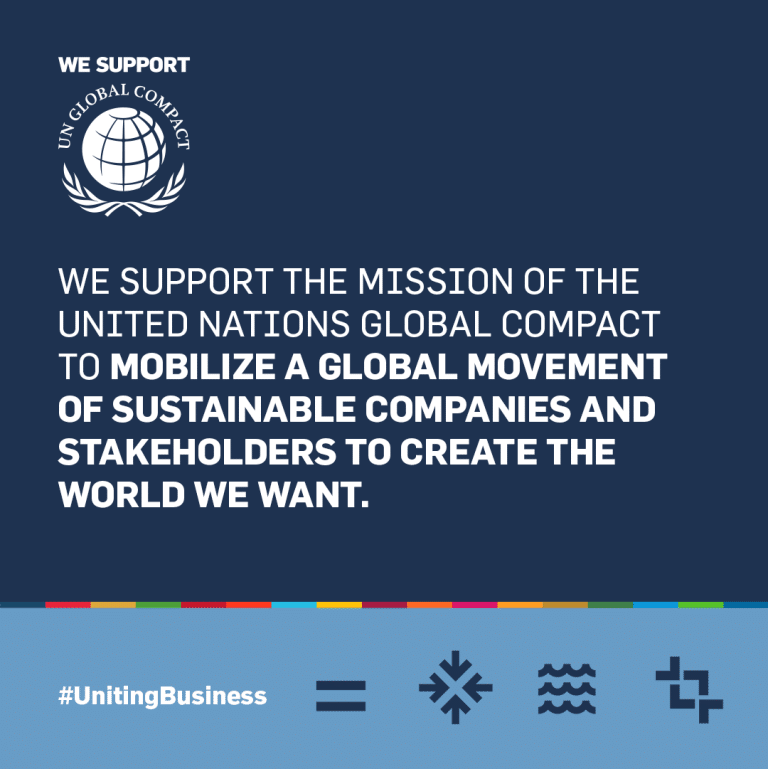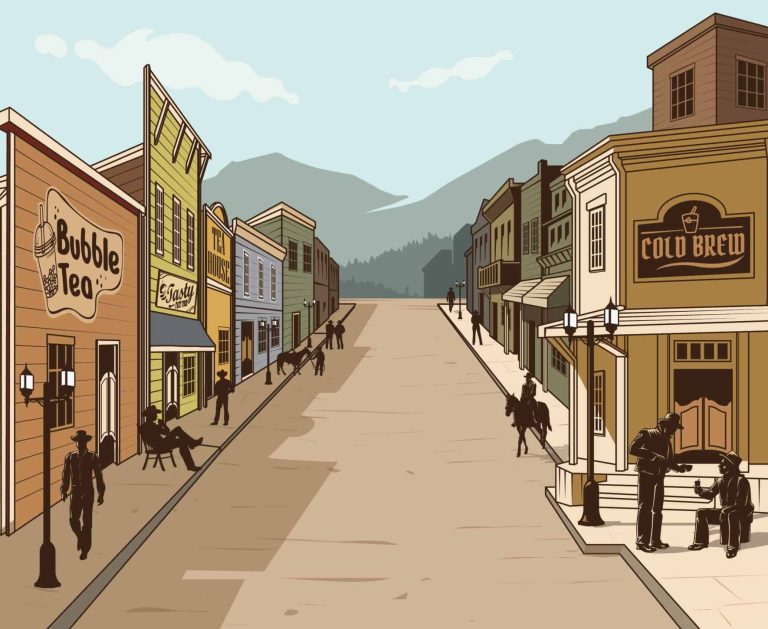October 1 is World Coffee Day, run by the International Coffee Organisation. It is a celebration of the coffee sector’s diversity, quality and passion. It is an opportunity for coffee lovers to share their love of the beverage and support the millions of farmers whose livelihoods depend on the aromatic crop.
To help commemorate this important day, we asked our Group Head of Coffee Tom Blackwall to share his impressions from a recent visit to our key suppliers in Brazil. It was Tom’s first visit back to origin since before Covid, and while there, he discovered the challenges facing the Brazilian coffee industry, how the 22/23 Brazil coffee harvest is progressing, and saw first-hand the positive impact of Finlays investment into farming communities.
—
Brazil is the biggest grower of coffee in the world, producing about a third of the world’s coffee. Because of this, it’s probably the most significant country when it comes to the global supply and demand balance. It’s the country that really drives speculative sentiment on the coffee futures exchange.
Interestingly, over the last 35 years, the harvested coffee area in Brazil has reduced by about 0.6 million hectares, or around 25%. However, production has simultaneously increased by 1.4 million tons or around 50%. This has been driven by the Brazilian coffee industry’s strong focus on good agricultural practices, mechanisation and yield improvements
Brazil is also a significant origin for Finlays’, as it accounts for a large proportion of the coffee that we buy within the group. We have a number of long-term suppliers in Brazil, some of whom are classed as strategic suppliers within our Supplier Relationship Management programme.
For all these reasons, Brazil was the obvious choice for my first trip back to origin since before the pandemic.

Brazilian coffee harvesting challenges
My first stop was the city of Ouro Fino to the north of Sao Paulo. Here the high altitude and mineral rich soils produce a complex coffee with rich roasted notes and a full-bodied finish. Ouro Fino is the home to Humberto Florezi Filho and Falcafe who produce coffee on two farms in Minas Gerais. Falcafe not only has a reputation for producing high-quality coffee, but also for putting the producer first through their ‘neighbours and friends’ coffee programme which promotes sharing of knowledge between farmers, field days, technical courses and access to international buyers and markets.
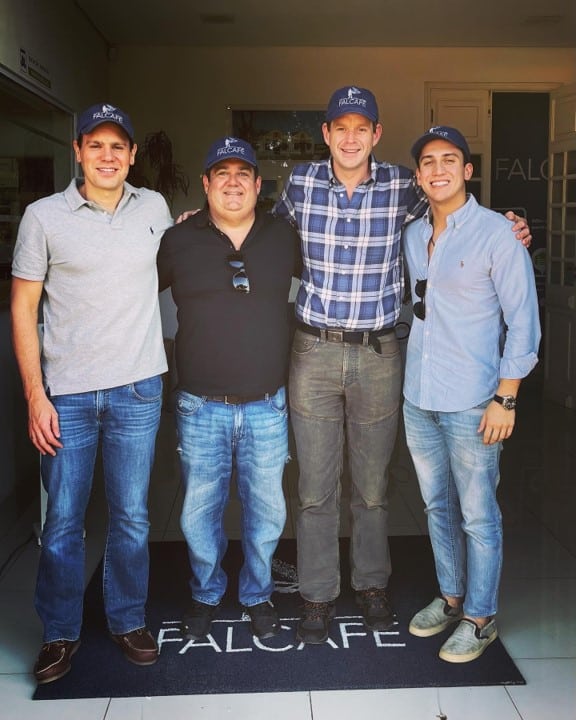
Having just landed in Brazil, the first thing I noticed was the space in the warehouse at Falcafe. At the height of Brazil’s coffee harvest season, there was no coffee around, no trucks unloading coffee into the mill, none of the usual hum of the milling machines and – in general – a lack of the hubbub you might expect to see at a mill during the height of harvest season.
And this was the theme that I was soon to find in the eight other mills that I visited. Before I left the UK’s shores there was talk of a delay in the Brazilian harvest, but with an estimated 66% of the harvest already completed (according to Safras & Mercado) it was looking more likely that yields were significantly down.
Progressive farming techniques for anaerobic fermented coffee
I travelled on to Fazenda Santa Maria near Varginha where I met up with good friend Jose Orlando Fenoci. Jose Orlando’s farm is superb example of a number of progressive coffee farming techniques. Jose Orlando has been consistently producing specialty grade and micro lot coffee for a number of years and one technique he was keen to show me was his anaerobic fermented coffee.
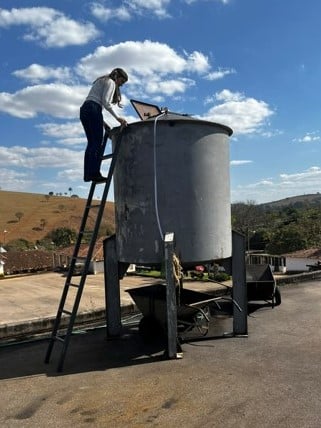
When Jose Orlando’s father ran the farm he used to make Cachaca – a distilled sugar cane – in huge tanks next to the coffee drying patios. Jose Orlando now uses these same tanks to anaerobically ferment his coffee, producing a coffee which is full of tropical fruit flavours and bright citrus acidity.
On touring Jose Orlando’s farm, it was hard to miss how the severe cold weather recorded in July 2021 had stunted growth on some of the trees. Where we expected two metres of new branch growth on the trees we were only seeing half of what was expected. This stunted growth is likely to affect the 2023/24 crop as the coffee tree flowers on new growth.
Labour issues
In Varginha we saw Luisa Nogueira, another friend who had just started the harvest and was hugely concerned about the lack of yield coming from the freshly harvested trees. She mentioned that when the coffee was being dried on the patio, they were opening up the cherries to find that the beans inside had not been fertilised.
She also mentioned the lack of availability of labour, a problem seen across the coffee sector in Latin America. She said that in 2020 she had 500 people to harvest a farm of 3.5 million trees, but last year she could only find 300 people. This year that number was 90. This leads to coffee cherries drying on the tree before being picked, and a poorer quality and lower yields.
Finlays investment in farming communities in action
Next we travelled to Paraguacu to meet with COOMAP, a Fairtrade cooperative we have worked with for a number of years. COOMAP is a cooperative of small-scale farmers, many of whom are multi-generational, with coffee as their primary source of income.
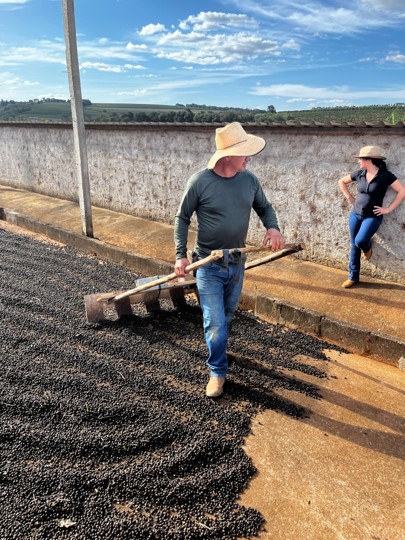
Back in 2019 we identified that some of the farms within the cooperative didn’t have waste water treatment systems and this meant that contaminated water was leaching into the natural springs that were used as the farms’ water supply. So in 2020 we invested in simple water treatment systems so that now all the farms can treats their waste water, in a natural way. This creates clean water systems in and around their farms.
It was fantastic to finally see the water treatment systems on a number of farms and hear the gratitude and stories of the farmers who have benefitted from this project.
The benefits of long-term strategic partnership in coffee
Our final stop was ASSCOSTAS, a cooperative we have been buying from for 14 years and one of the first cooperatives in Brazil which Finlays helped to become Fairtrade certified. Here we met the new President Eliezer Reis who continues to grow the cooperative from very humble beginnings.
Finlays has developed a very strong relationship with ASSCOSTAS, one that crosses oceans and withstands market movements. In 2019 Finlays purchased their entire Fairtrade crop, something that the cooperative is hugely grateful for because, without our support, they would have struggled to survive. We treasure the relationship that we have with ASSCOSTAS and it is great to see the benefits of a strategic supplier, strategic customer relationship playing out.
Eliezer took us to a number of coffee farms, and again we witnessed the impacts of the drought and subsequent frost on the yield. Some farmers were mentioning yields being down almost 50% on what they would expect in a normal year which is of huge concern.
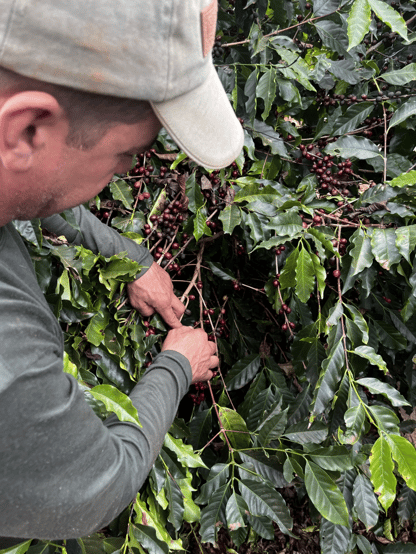
What next for Brazilian coffee?
I came away from a packed 10 days in Brazil with the assurance that Finlays’ Supplier Relationship Management programme, quality due diligence, and supply chain investment programmes are very much industry leading. And that they build on our ethos of sustainable supply through supplier continuous improvement.
After a three-year hiatus it was satisfying to conduct supplier reviews at the source of the production of our raw materials and reassuring to see that the relationships we have built are as strong as ever.
But I also came away from Brazil with concern about the 2022/23 coffee crop. The impacts of climate change and labour shortages are a very real and present challenge for producers, and thus for the coffee industry as a whole. More than ever, I have a strong appreciation of how the coffee world and farming in general plays such a tight balancing act with the ever-changing climate.
What’s clear to me, looking to the future, is that global economic volatility coupled with changing weather patterns creates significant risks, but also opportunities. Farming may well have to adapt and genetic differentiation of crops may well play an important role. For mature coffee businesses, risk and opportunity management within the supply chain should be the key focus area to ensure stability of price, quality and supply.
Strategic investment within supply chains should be something that we should all as an industry be considering, even during tough economic times. Improvement in communities, agricultural practices and our environmental impact will create a sustainable future in coffee and continued diversity in the product that we love.
